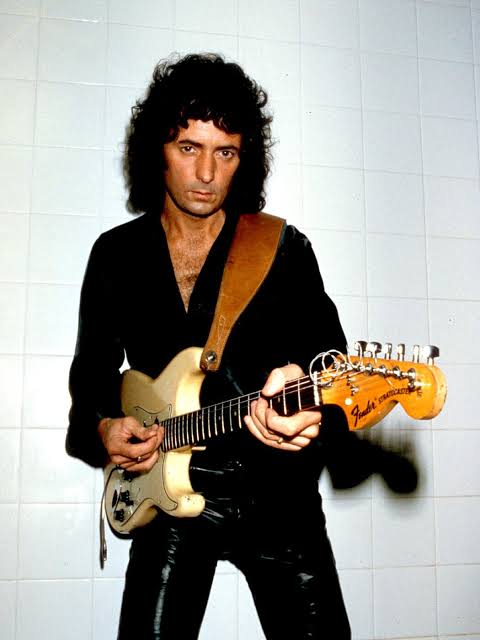OPINION: What’s Wrong with Ritchie Blackmore? Fans Wonder Why the Guitar Legend Rarely Sings
Ritchie Blackmore, the iconic guitarist behind Deep Purple and Rainbow, has long been hailed as one of the greatest axemen in rock history. With his neoclassical flair, fiery stage presence, and groundbreaking riffs on tracks like “Smoke on the Water” and “Man on the Silver Mountain,” Blackmore helped redefine what it meant to be a lead guitarist. But over the years, one question has consistently surfaced among fans—why doesn’t Ritchie Blackmore sing?
It’s not an uncommon question. After all, many legendary guitarists—Eric Clapton, Jimi Hendrix, and Mark Knopfler among them—have stepped up to the mic to complement their fretwork. So why has Ritchie, who has been front and center for nearly six decades, chosen to keep his vocals largely in the background?
The short answer: because that was never his lane—and he’s perfectly fine with it.
A Musician First, Not a Frontman
Those familiar with Blackmore’s career know that he has always been intensely focused on musicianship and composition. From the early days of Deep Purple to his later work in Rainbow and Blackmore’s Night, Ritchie has consistently worked with strong vocalists—Ian Gillan, Ronnie James Dio, Joe Lynn Turner, and more recently, Candice Night.
It’s clear Blackmore sees the voice as an instrument in its own right, best handled by those who have mastered it. In interviews, he’s even admitted that while he enjoys singing in private or as part of backup vocals, he’s never considered his own voice suited for lead work.
“I can sing, but I’d rather let someone better do the job,” he once quipped in an interview. “I know my strengths—and they’re in my fingers, not my throat.”
Focused on the Sound, Not the Spotlight
Blackmore has always preferred letting his guitar do the talking. His tone, phrasing, and improvisation have conveyed more emotion than many singers can muster. To fans, this dedication to craft over ego is part of what makes him so compelling.
While many guitarists are tempted to double as frontmen, Blackmore seems to relish staying a step back—controlling the band’s sound, arrangements, and mood from the shadows, rather than grabbing the mic and basking in the spotlight.
In bands like Rainbow and Blackmore’s Night, he has taken on the role of composer and arranger, shaping the music’s soul while trusting his vocalists to deliver the message.
A Rare Voice When He Chooses
Though rare, Blackmore has sung on occasion. He’s provided backup vocals on several Rainbow tracks and has occasionally sung live for fun, particularly in more relaxed or acoustic settings. Fans of Blackmore’s Night have even caught moments where he joins Candice Night in harmony, offering a glimpse into what might’ve been—if he had ever truly pursued it.
But these moments are fleeting by design. For Ritchie, singing has never been a passion or a necessity. His voice was always the guitar, and the emotion in his solos speaks volumes.
Final Thoughts
Ritchie Blackmore doesn’t need to sing to be legendary. In an industry filled with frontmen eager to claim the spotlight, Blackmore has remained enigmatic—letting his guitar wail, whisper, scream, and sing on his behalf.
So when fans ask, “Why doesn’t Ritchie sing more?”—perhaps the better question is, “Why would he need to?”
Because in the end, Ritchie Blackmore never needed a microphone to leave his mark. His music speaks louder than any words ever could.
